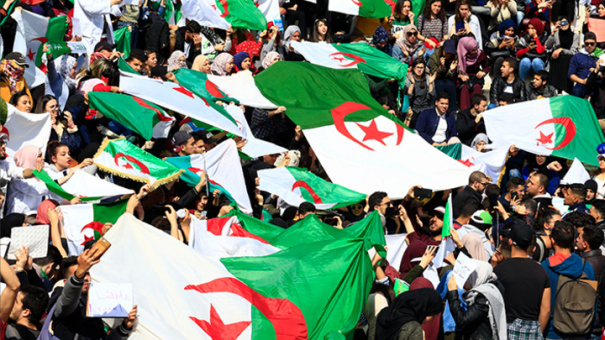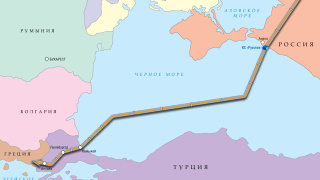After the “Algerian Spring” Europe can give the go-ahead to the “Turkish Stream”
Algeria is on the verge of a regime change, which is caused by the residents' discontent with the protracted rule of the seriously ill Abdel Bouteflika.
Algeria has been covered for the second week in mass protests. Up to a million people took to the streets of the main cities - these are the largest rallies not only since the “Arab Spring” of 2011, but also from the war of independence from France in the middle of the last century.
The people are revolting primarily because of the decision of 82-year-old President Abdel Aziz Bouteflika to go for a fifth term, after which he will rule for a quarter of a century. Citizens of the country are outraged not only by his prolonged stay in power, but also by the fact that he does not actually rule the state. Since 2013, when he suffered a stroke, Bouteflika never gave an official speech. In recent years, he spends more time in European hospitals than in the presidential palace, around which the indignant youth gathered. According to local media, now the Algerian leader is in the Geneva clinic, and his condition is worsening from day to day.
Socio-economic conditions are layered on this political cause. Although Algeria is a very rich country and ranks 7th and 15th in the world in terms of gas and oil reserves, respectively, the fall in prices for "black gold" has wrecked its economy. Unemployment is rising in the country. Half of people under the age of 30 cannot be employed. The roots of this problem lie not only in the energy conjuncture, but also in corruption. According to the Al-Jazeera newspaper, over the past 20 years, the Arab country has earned up to a trillion dollars in sales of energy, but at least 300 million of them have gone unrecorded.
In this situation, it would be premature to say that the State Department is behind the unrest in Algeria. Although After the overthrow of the regimes in Egypt, Libya and Tunisia, the Americans would very much like to bring loyal regimes to power there. However, these intentions are faced with a harsh reality.
Bouteflika’s reluctance to leave may lead to an increase in violence, the son of the country's first prime minister has already died in the riots. Potential chaos is dangerous primarily for the Old World. Located on the outskirts of Spain and Italian Sardinia, the country may become the second “gateway” after Libya for migrants from Africa. Instability threatens Europe and interruptions in gas supplies, and this will painfully affect the economies of Italy and Spain.
From the positive in this situation, we can only assume that after the “Algerian spring” in the EU, it can be concluded that to provide Europe with gas of one “Nord stream” may not be enough, and it can give a green light to the extension of the “Turkish” stream.




